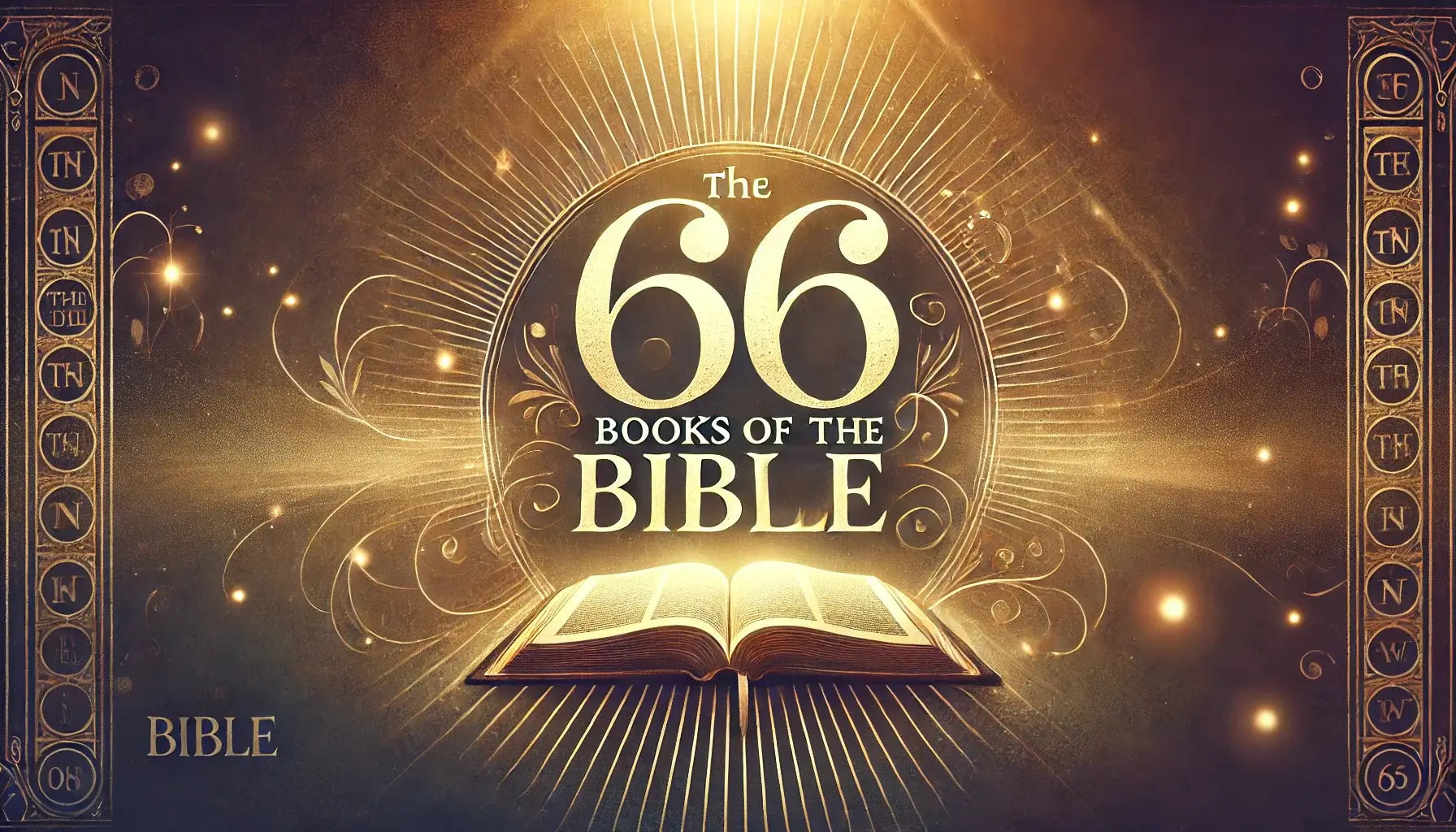The Bible is a collection of 66 books Christians believe to be the inspired Word of God. These books, written by more than 40 authors over 1,500 years, are divided into two main sections: the Old Testament and the New Testament. Each book contributes uniquely to the overarching narrative of God's relationship with humanity, offering wisdom, history, prophecy, poetry, and guidance for living.
Let’s explore these books, their organization, and their significance.
The Structure of the Bible
The 66 books of the Bible are grouped into categories based on their themes and purposes. Here's a breakdown:
The Old Testament (39 Books)
The Old Testament is foundational. It chronicles the creation of the world, the history of Israel, God's covenant with His people, and the promise of a Messiah.
1. The Books of the Law (5 Books)
Also called the Pentateuch or Torah, these books lay the groundwork for God's covenant with humanity.
- Genesis: The creation, the fall, and the patriarchs.
- Exodus: The Israelites' liberation from Egypt and God's laws.
- Leviticus: Laws for worship and holiness.
- Numbers: Israel’s wilderness journey.
- Deuteronomy: Moses’ final instructions before entering the Promised Land.
2. The Historical Books (12 Books)
These books document Israel's history from conquest to exile.
- Joshua: The conquest of Canaan.
- Judges: The cycle of sin and deliverance.
- Ruth: A story of loyalty and God’s providence.
- 1 & 2 Samuel: The establishment of the monarchy.
- 1 & 2 Kings: The divided kingdom and eventual exile.
- 1 & 2 Chronicles: A retelling of Israel’s history.
- Ezra: The return from exile and temple rebuilding.
- Nehemiah: Rebuilding Jerusalem's walls.
- Esther: God’s deliverance of His people in Persia.
3. The Wisdom Books (5 Books)
These poetic books focus on worship, wisdom, and human experiences.
- Job: Perseverance through suffering.
- Psalms: Songs and prayers of worship.
- Proverbs: Practical wisdom for life.
- Ecclesiastes: Reflections on life's meaning.
- Song of Solomon: A poetic celebration of love.
4. The Major Prophets (5 Books)
Longer prophetic books reveal God's plans for judgment and restoration.
- Isaiah: Messianic prophecies and hope.
- Jeremiah: Warnings and promises to Judah.
- Lamentations: Mourning Jerusalem’s fall.
- Ezekiel: Visions of restoration.
- Daniel: Faithfulness in exile and apocalyptic visions.
5. The Minor Prophets (12 Books)
Shorter prophetic writings addressing Israel’s unfaithfulness and God’s plans.
- Hosea, Joel, Amos, Obadiah, Jonah, Micah, Nahum, Habakkuk, Zephaniah, Haggai, Zechariah, Malachi.
The New Testament (27 Books)
The New Testament focuses on Jesus Christ, the early church, and God’s ultimate plan for salvation.
1. The Gospels (4 Books)
The Gospels tell the life, teachings, death, and resurrection of Jesus Christ.
- Matthew: Jesus as the promised King.
- Mark: Jesus as the suffering servant.
- Luke: Jesus as the Savior for all people.
- John: Jesus as the eternal Son of God.
2. The Historical Book (1 Book)
- Acts: The birth and growth of the early church.
3. The Pauline Epistles (13 Books)
Letters written by Paul to churches and individuals, offering theology and practical guidance.
- Romans, 1 & 2 Corinthians, Galatians, Ephesians, Philippians, Colossians, 1 & 2 Thessalonians, 1 & 2 Timothy, Titus, Philemon.
4. The General Epistles (8 Books)
Letters from other apostles addressing specific communities or challenges.
- Hebrews, James, 1 & 2 Peter, 1, 2 & 3 John, Jude.
5. The Prophetic Book (1 Book)
- Revelation: A vision of Christ’s ultimate victory and the new heaven and earth.
Key Themes Across the Bible
- God’s Sovereignty: The Bible consistently shows God as Creator and King overall.
- Covenant Relationship: God’s promises to His people highlight His faithfulness.
- Human Redemption: Sin enters through Adam, but salvation comes through Jesus Christ.
- Faith and Obedience: Many books call readers to trust and obey God.
- Hope in Christ: The Old and New Testaments point to Jesus fulfilling God’s plan.
Summary Table: Old vs. New Testament
| Category | Old Testament (39 Books) | New Testament (27 Books) |
|---|---|---|
| Focus | God’s covenant with Israel | Fulfillment of God’s promise in Jesus |
| Key Figures | Abraham, Moses, David | Jesus, Peter, Paul |
| Themes | Law, history, prophecy | Gospel, salvation, church |
| Literary Styles | Law, poetry, prophecy, history | Biography, letters, apocalyptic vision |
Why Are the 66 Books Important?
The Bible’s 66 books form a cohesive story that guides faith and life. For Christians, 2 Timothy 3:16 sums up its purpose:
“Every Scripture is God-breathed and profitable for teaching, for reproof, for correction, and for instruction in righteousness,”
By studying these books, believers grow in understanding God’s will and His plans for humanity.
























